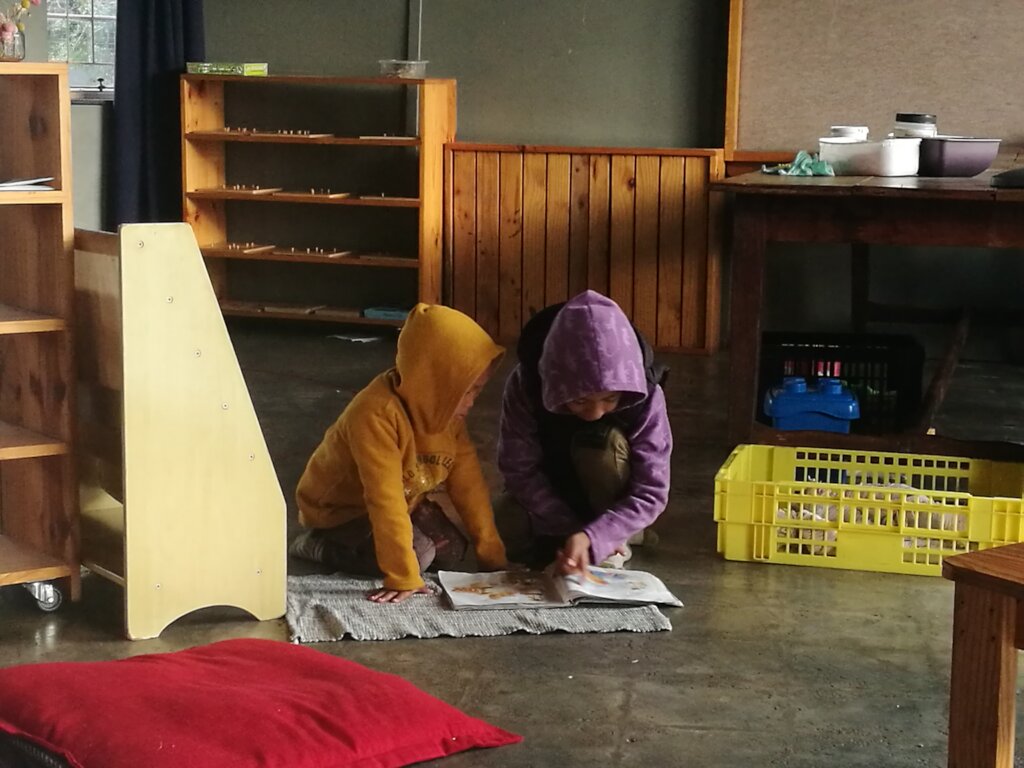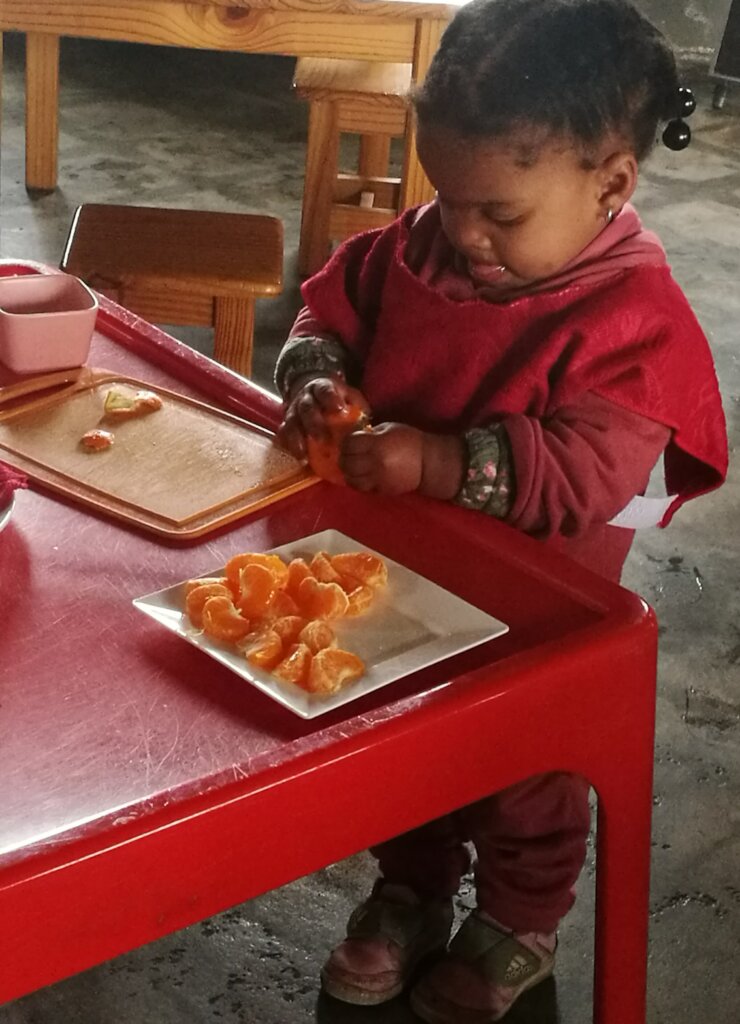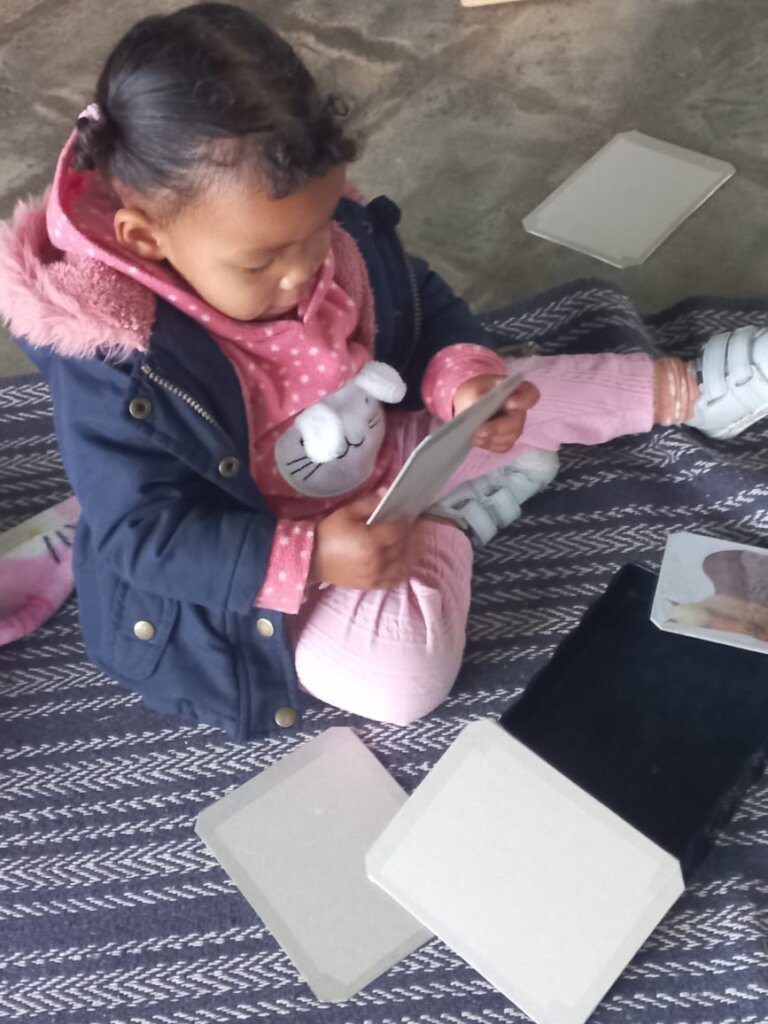By Claire Howie | Owner and educator at Wellington CASA
At Wellington CASA our Vision is to work in order that we may aid the development of all the facets of a human being through an environment specially prepared for the child. We monitor our work in our Vision through observing the changes that take place through the early developmental years of a child.
Autumn has been a chilly one. And with it came many ill children. Runny noses, coughs and sneezes, funny tummies, colds, flus, Hand, foot and mouth disease, some mumps, tonsillitus are what we have experienced this year. (It has been the worst autumn to my memory, where children's health has been concerned.)
However, this gave us the opportunity to give children many opportunities in hygiene.
Looking after oneself is the first step in self-awareness. We have seen a change in the children's clothing and shoes. Children are cleaner and neater now.
On the physical side, our method allows for the much needed movements required for a balanced gross-motor and fine-motor development. But we have also considered nutrition. We have realised that the children generally eat a lot of starch in their meals at home, and so we have been introducing as many different fruits and raw vegetables into their daily snacks, and give the children unsweetened teas or water to drink, rather than sweet juices.
We have introduced easy food preparation activities for the children, from peeling eggs and naartjies, to using apple slicers and small knives for slicing, and peelers for peeling items such as carrots and apples. Children are introduced to the different activities as their coordination and skills develop. Younger children have simplerr activities.
Children are able to choose what snack foods they would like to eat, and which ones to avoid. Another opporunity for self-awareness.
We have been corresponding with parents about healthy foods. The children are also receiving healthier foods in their lunch boxes.
Not only are the children beginning to display a sense of self-awareness (with our guidance) but are also becoming aware of their environment. We find the children helping to keep their class environment tidy. Wiping tables, sweeping and mopping, packing away things, washing tables and walls, scrubbing the slide and other activities are always being done by somebody. Without our input. And if we do ask, the children are always eager to help.
Water and soap make bubbles!!! What more does a child like more than making lots and lots and lots of bubbles?
These activities of daily living, care of oneself and care of the environment give the child lots of experiences for development. Skills such as eye-hand coordination, visual discrimination, hand-hand coordination, crossing the mid-line, strengthening of the core- and shoulder muscles, balance, sequence of tasks, completing a task, arm movements, hand strengthening, using different grasps, focus, and many more are used doing these tasks.
The environment is a physical one, but also a people one, and we have had the honour to witness and observe the social growth that happens as children move through the different developmental stages. We love how children work and play together. How they are comfortable being on their own. And how they can converse with one another and share information from their knowedge and expereinces when they are given the opportunity.
Children love language. And we spend our days in a rich language environment. From teaching vocabulary, to conversing, to singing songs and reciting poems, to teliing stories and reading stories, to playing sound games such as I spy with the 3-6 y.o. and introducing phonics.
Communication is always happening. And it is the children in our environemtn who communicate the most!
Self -, Space-, and Social-awareness are key to developing as contributing human's into communities. And we have had many lovely examples of this happening in our community, from the youngest child of one year old to the oldest child of 6.
Links:
Project reports on GlobalGiving are posted directly to globalgiving.org by Project Leaders as they are completed, generally every 3-4 months. To protect the integrity of these documents, GlobalGiving does not alter them; therefore you may find some language or formatting issues.
If you donate to this project or have donated to this project, you can receive an email when this project posts a report. You can also subscribe for reports without donating.


